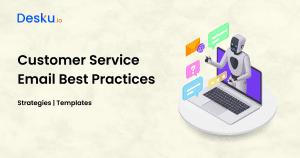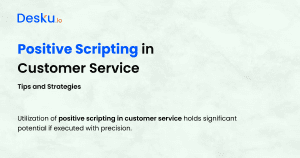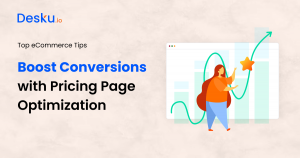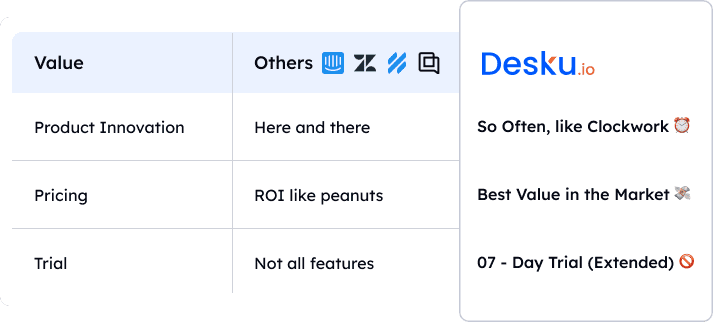Building an ecommerce business without the right tech tools is like trying to build the Eiffel Tower with a toy set – nearly impossible! So, let’s chat about tech stacks for your online business.
Even if you’ve got the coolest products around, you need strong digital support for your online store. Kind of like having the right backup in a Wild West showdown.
In this easy-to-understand guide, we’ll give you a tour of the vibrant world of ecommerce tech stacks. We’ll chat about what they mean, why they’re pretty important, and how to create one that fits your business like a glove.
If tech talk makes you break out in a cold sweat, fear not. We’re here to make this as simple as possible, so buckle up and let’s get started on this illuminating ride.
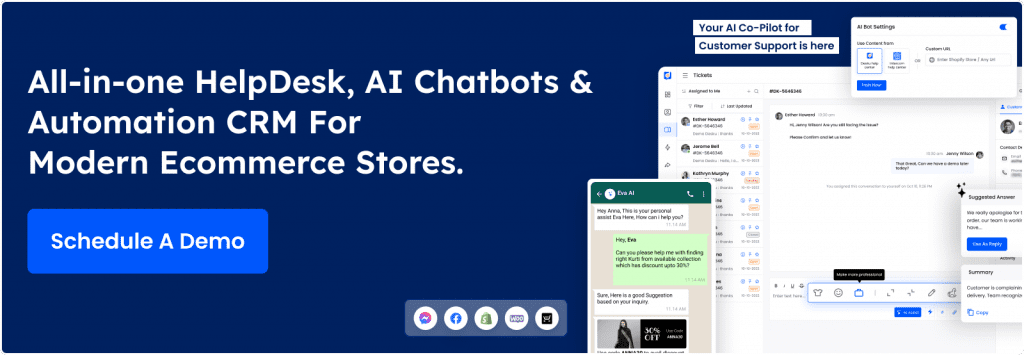
What is an Ecommerce Tech Stack?
The ecommerce tech stack is nothing but the overall collection of tools that are used to run an online ecommerce business. It may be anything tools, software, any digital platform for sales, marketing, customer support and much more.
Think of it as the spine of your online shop. It’s made up of an assortment of digital tools, technologies, and software applications. These elements work together to simplify and automate a bunch of operations – from getting orders ready for shipping to handling customer service. Your eCommerce platform depends on this tech stack to function at its best.
The tech stack includes things like web development technologies, scripting languages for the server side, databases, and systems to manage content. But it doesn’t stop there. Your eCommerce tech stack also helps automate features like fulfilment, customer service, payment gateways, and keeping track of inventory.
It’s like a well-oiled machine, with all these tools working together to create a smooth-running online marketplace. The right tech stack can improve how your business runs and the experience you offer your customers. So, it’s important to have a well-rounded eCommerce tech stack to give your eCommerce platform a boost.
But remember, it’s not just about having the right tools; it’s about using them smartly to push your business forward.
Key Takeaway :
Building a successful ecommerce business requires the right tech tools, known as an ecommerce tech stack. This stack is a collection of digital tools, technologies, and software applications that work together to simplify and automate various operations, such as order fulfillment, customer service, and inventory management. It’s like the backbone of your online store, essential for its smooth operation and the experience it offers to customers. The right tech stack can significantly improve how your business runs and the experience you provide to your customers.
Factors to Consider When Selecting an eCommerce Tech Stack
Picking an eCommerce tech stack for your business? There are a few important things you need to keep in mind that can greatly affect how your business runs and your profits. Let’s talk about these factors to help you make the right choice for your online business needs.
First up, let’s talk about price. Just like shopping for anything else, you want to make sure the tech stack is within your budget and gives you a bang for your buck. It’s not about finding the cheapest option, but about finding one that adds real value to your online platform.
Next, think about how well the tech stack will work with your business needs and the systems you already have in place. It should fit in with your plan for developing your eCommerce site and work well with the technology you’re currently using.
How easy it is to use is also something you should think about. If it’s user-friendly, it can make your operations run more smoothly, add extra features, and make your customer’s experience better. Look for platforms that have easy-to-understand guides and resources to help your team make the most of the tech stack.
And last but not least, what kind of customer support does the tech stack offer? You want a team that’s there for you when you need help and can quickly solve any problems. This will help your online business run without a hitch and let you get the most out of your chosen tech stack.
How To Build a Winning Enterprise Ecommerce Tech Stack?
When it comes to choosing the application or software, ecommerce business owners have a wide range of options and it has its pros and cons too. A big disadvantage is that, ecommerce business owners often might get confused about which platform to choose to implement in their business.
Before everything, it is important to first note down what are important factors to take care of the tools!
- Finance Management
- Complexity
- Customer Support and Service (AI-Helpdesk Platform)
Start with a solid foundation – a managed commerce platform is a great choice. It’s reliable and sturdy – just what your operations need.
So remember, don’t trap yourself in too many isolated components. Keep it flexible and ready for growth tools and platforms.
Sounds pretty doable, right?

1. Cost [Finance Management]
When it comes to the financial side of your ecommerce technology, it’s important to think carefully about the cost of each piece of your tech puzzle. You want to ensure you’re getting a good deal, but it’s not just about finding the cheapest tools. The key is to find the ones that give you the best value for your money. This often means making thoughtful investments in your tech stack.
Make decisions that are smart and informed. Do your research, weigh your options, and choose tools that will contribute positively to your financial success.
2. Complexity [Ease of Use]
In the world of online selling, understanding and managing the intricacies of your technology setup is crucial. It’s not just about knowing what each piece of technology does, but also about making sure they all work together efficiently. You need to plan strategically to ensure that everything is connected, can scale with your business, is adaptable, cost-effective, and has good support.
When picking the right online selling platform and setting up the right technology for your website, you need to consider several elements:
👉🏻Your technology setup needs to be able to grow with your business.
👉🏻All of the different technology pieces need to work together smoothly, so you avoid data being siloed.
👉🏻Choose technology pieces that can adapt to the changing needs of your business and keep up with the latest technology developments.
3. Compatibility
Picking the right tools for your online shop’s tech stack isn’t something you should rush into. It’s all about making sure these tools work well with what your business specifically needs. You want to find tech solutions that can smoothly blend with the technology you already have. This way, you avoid ending up with a system that feels like a bunch of mismatched puzzle pieces.
Let’s not forget how important it is to find tools that are easy to use. You want something that comes with straightforward guides and support resources. Speaking of support, customer service is crucial. You want to align your tech stack with brands that have a reputation for excellent customer support. This way, you’re setting yourself up for success in the online shop space.
Utilizing tools like customer relationship management (CRM) software, personalized recommendation engines, and loyalty program platforms can all enhance the overall customer experience and ultimately improve customer retention rate.
This is a strategy that needs a mix of analysis, attention to detail, and tech know-how, but it will help your business grow.
4. Customer Support and Service
Building your online business’s tech infrastructure can be a tricky task. It’s essential to have a strong emphasis on customer support, as it’s your first line of defence against any technical hiccups that might crop up. Essentially, this part of your tech stack is your knight in shining armor when it comes to ecommerce customer service, managing customer relationships, and giving your business a boost.
👉🏻Choosing the right software solutions is like picking the perfect outfit – it has to match your style. So, make sure they sync with your preferred communication channels, whether it’s through a live chat solution, email, or a dedicated support hotline.
👉🏻It’s always good to have a backup plan, isn’t it? So, look for a management system that comes with a rich knowledge base, tutorial videos, and handy FAQs to help you navigate through any issues.
👉🏻It’s a no-brainer to go for tools and platforms that offer round-the-clock support. This way, your online business stays up and running, no matter what.
In essence, support is the backbone of your ecommerce tech stack. It’s like the stage manager in a play, overseeing inventory management, payment gateway glitches, and other technical aspects that make your ecommerce business shine.

7 Areas To Build Your Tech Stack [For Ecommerce Business]
When building an Ecommerce business, it is very essential to have the checklist handy with you so you can get started without getting confused anymore. Let’s get into the tech stack list!
✅ Ecommerce Platforms
If you are starting an ecommerce business, it is important that you first develop the ecommerce business platform where you can sell your products. There are various tools and platforms where you can showcase your business and sell it seamlessly.
Some of the leading customer support platforms are;
📌 Shopify
📌 WooCommerce
📌 Ecwid
📌 BigCommerce
These are some of the leading Ecommerce platforms, that will execute the best ways to showcase your products and sell them seamlessly.
✅ Customer Support and Help Desk Platform
Ecommerce customer service works like a cherry on top, where there is a lot to manage considering the customer conversation and keeping up with each customer’s queries. With the right help desk customer support platform, there is not to worry about anything as it seamlessly manages the customer queries under one platform. May it be from any communication channel like Email, Live chat, WhatsApp, or Messenger.
Desku.io is one of the customer support platforms that fits perfectly if you are looking for a seamless customer support platform for your e-commerce business. It has all the features that you require such as;
☑️ Unified Inbox
☑️ Live Chat
☑️ No-code chatbot builder
☑️ Knowledge Base
and much more!
In a way, you need an all-in-one customer support platform that helps in managing all the customer queries in one so you do not need to shuffle from one tool to another. Surely, it’s all you need.
✅ Inventory Management
Efficient order management is crucial for eCommerce businesses to monitor orders from various sales channels effectively.
Additionally, a strong inventory management system is essential for tracking stock levels in real-time, forecasting demand accurately, and facilitating the inventory replenishment process through features like automated reorder points.
Top-notch solutions for order and inventory management include:
⭐️ Skubana
⭐️Inventory Planner
⭐️Order Desk
⭐️Cin7
⭐️Zentail
Third-party logistics providers (3PLs) such as ShipBob offer sophisticated fulfilment technologies with integrated inventory management capabilities, enabling brands to oversee fulfilment, inventory, orders, and shipping from a single dashboard.
For brands in need of more comprehensive solutions, the above-mentioned inventory management systems seamlessly integrate with ShipBob’s technology.

✅ Fulfillment and Shipping
Automating order fulfillment and shipping processes is a key component of the ecommerce technology stack.
Fulfillment technologies and cloud-based shipping solutions aim to expedite the picking, packing, and last-mile delivery stages.
An ideal solution can autonomously find the optimal route by compiling carrier data, confirming orders, and directing them to the nearest warehouse or distribution centre, including the seamless creation of shipping labels.
Top fulfilment and shipping solutions include:
♦︎ ShipBob
♦︎ Shippo
♦︎ ShipStation
✅ Product Information Management
Ecommerce businesses experiencing rapid growth often face challenges with frequently adding or removing products, which requires significant management effort.
Thankfully, SKU management and catalogue management solutions exist to simplify the process of viewing, managing, and editing SKUs, as well as making real-time adjustments. This ensures that accurate product listings and stock levels are displayed across various sales channels.
Top product information management solutions include:
👉🏻 Plytix
👉🏻 Sales Layer
👉🏻 Akeneo
✅ Order Return Management
Delivering an outstanding customer experience requires a returns process that’s as straightforward as the buying and delivery stages.
Your technology stack needs to feature an efficient returns management system to streamline returns, prompting customers to opt for an exchange or make a subsequent purchase shortly.
Premier returns management solutions for ecommerce encompass:
📌 Happy Returns
📌 Loop Returns
📌 Returnly
Related Article:10 Best Tips on How to Reduce Returns in E-Commerce [Stats and Best Practices]
✅ Sales and Marketing
Marketing is essential for drawing customers to your store, covering crucial areas like email marketing, social media, and cart optimization through automation solutions.
A well-chosen marketing tech stack allows your marketing team to concentrate on strategic tasks instead of getting stuck in repetitive, manual work.
Leading marketing automation tools are:
🚀 Klaviyo
🚀 Omnisend
🚀 Octane AI
Build a successful e-commerce tech Stack with these Tips
We have seen all the factors and know the important tech stack for any ecommerce business to run successfully but again, to stay ahead of the market, it becomes an important and integral part to get into these tips!
🎯 Go Headless
Might be wondering what is going “headless”? Well, coming to the point where there are personalised experiences to be given to your customers, it is important to keep the front-end and backed technology separate. This helps to not get confused when there is any problem, and hence it gives the solutions quickly.
🎯 Avoid Installing Too Many Plugins!
Various plugins in the market make work much easier and no doubt it is much easier than availing any new platform. If the website is built on WordPress, it provides us with so many plugin options, that it is not appropriate to keep it all installed. It becomes important to manage and use it efficiently for WordPress. Instead of using multiple tools and plugins, find a tool that is an all-in-one platform for running operations on the website.
🎯 Adapt the flexible and new Languages
Choosing the right languages and frameworks is crucial for website development, with a preference for those that are contemporary and adaptable. This approach not only streamlines the creation of complex websites or applications but also facilitates easy testing and modifications due to its flexibility.
Take Shopify as an example; it provides more than 70 customizable website templates. This level of customization, including access to HTML and CSS, empowers you to tailor your pages, enhance your shopping cart, and seamlessly incorporate marketing, fulfilment, and shipping technologies into a cohesive tech stack.
🎯 Keep the tech on a medium pace
While technology addresses numerous challenges in ecommerce and enhances operational efficiency, it’s crucial not to become overly dependent on it for all aspects. The primary goal of technology in business is to reduce expenses and streamline operations. Thus, understanding how a specific technology will advantage your business is essential.
Before embarking on a digital transformation of your supply chain, it’s important to monitor key ecommerce KPIs. By doing so, you’ll gather valuable data, pinpoint areas of inefficiency, and determine how technology can best be utilized to refine your supply chain processes.
How Desku Helps by Being a Great Help Desk Tech Stack?
Desku.io is considered to be one of the greatest e-commerce tech Stacks for an all-in-one customer support channel that brings all the customer queries under one roof. Keeping up with the perfect engagement with customers through conversation, Desku has got everything covered. From its unified inbox to the automation, it becomes a great help for Ecommerce business owners to engage with customers timely.
Not only that, but it has powerful integrations, especially considering the e-commerce platforms like Shopify and WooCommerce. Your Ecommerce store customers can be easily managed with common tasks such as order returns or exchanges, asking for returns, or any other product-related queries can be easily managed with Desku!
This way you can now easily manage customer support queries across multiple channels, hassle-free!

Frequently Asked Questions
What does an ecommerce tech stack entail?
An ecommerce tech stack is a collection of technology-based applications, tools, and frameworks utilized to create and maintain the digital presence of an online brand.
Which ecommerce tech stack is considered the best?
The ideal ecommerce tech stack varies based on the specific technologies an online brand employs to operate its ecommerce operations. Choices span across ecommerce platforms, order and inventory management systems, payment gateways, fulfillment and shipping services, customer support tools, product information management systems, multichannel platforms, returns management solutions, analytics tools, and sales and marketing technologies.
What kinds of technologies are employed in ecommerce?
Ecommerce entities leverage a variety of technologies including cloud computing, the Internet of Things (IoT), artificial intelligence (AI), machine learning, and blockchain to maximize the efficiency of digital operations across sales, marketing, and supply chain management



